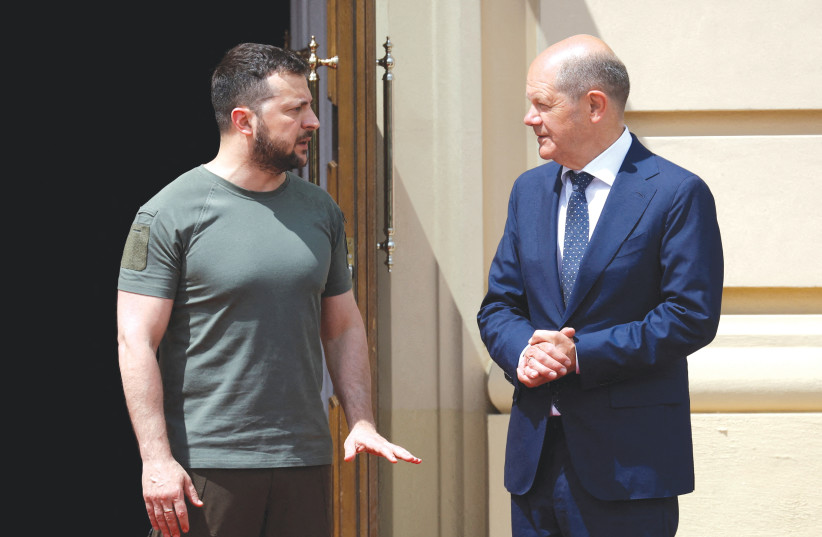German Chancellor Olaf Scholz on Thursday pledged long-term security assurances to Ukraine but dashed Kyiv's hopes for a swift accession to NATO.
"We have to take a sober look at the current situation," Scholz told German lawmakers in a speech in parliament, adding the government in Kyiv had itself acknowledged the country would not be able to join NATO as long as the war was still going on.
"Therefore, I suggest we focus on the top priority (at the NATO summit) in Vilnius (in mid-July), namely strengthening the combat power of Ukraine," Scholz said.
Berlin and its partners in the G7 and the European Union were working on long-term security assurances to Kyiv, he said.
"Our goal is ... a sustainable military support of Ukraine, including with modern Western weapons, and the strengthening of Ukraine's economic resilience as it defends itself against the Russian aggression," he said.

NATO squabbling over what to offer Kyiv
NATO countries are squabbling over what to offer Kyiv when the alliance's leaders meet in Vilnius on July 11-12.
While Kyiv and its closest allies in Eastern Europe call for concrete steps to bring Ukraine closer to membership, Western governments such as the United States and Germany are wary of any move that might take the alliance closer to war with Russia.
